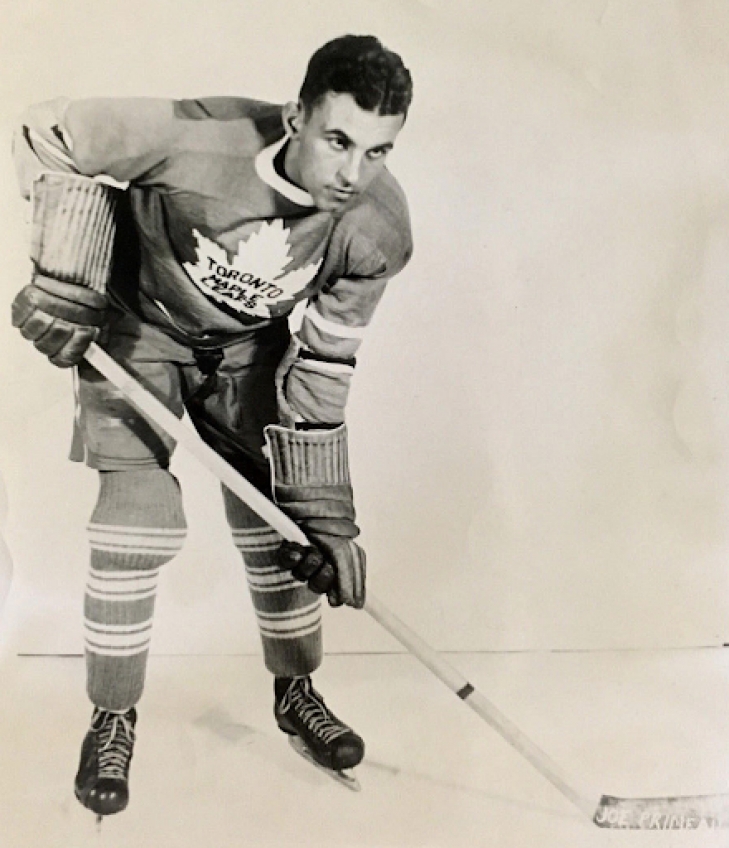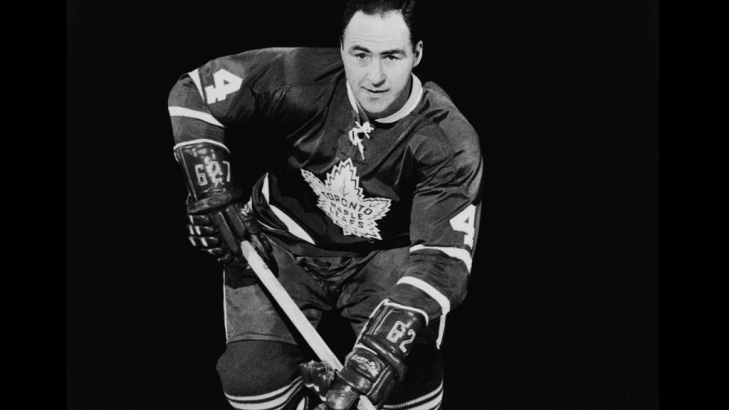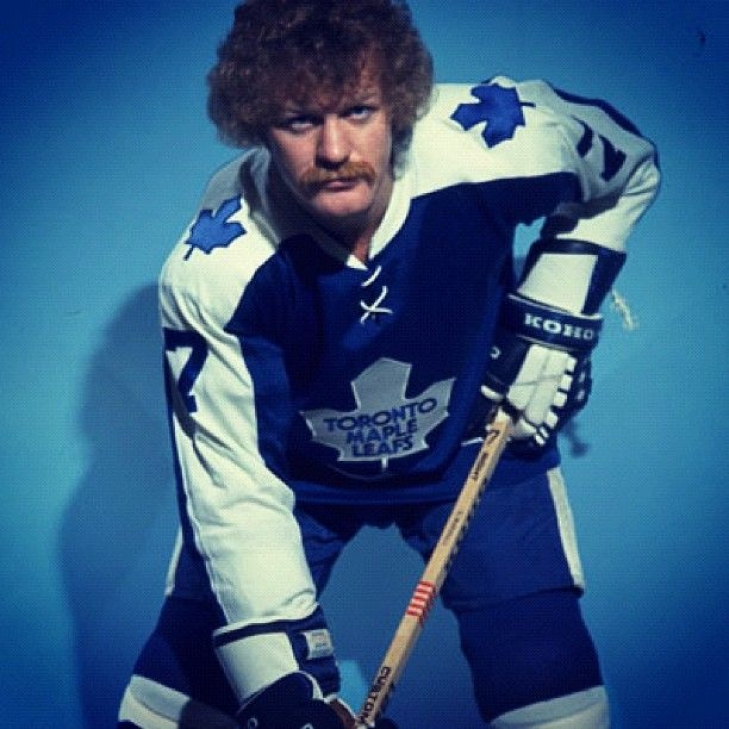
Committee Chairman
25. Carl Brewer
When it comes to hockey players who stood firm on their principles, Carl Brewer might have stood the tallest.
Brewer debuted in 1958 and was second in Calder Trophy voting for the 1958/59 Season. Showing grit on the defensive end and strong passing on the rush, Brewer quickly moved up to the upper-tier of blueliners in the NHL, earning three post-season All-Star Selections and anchoring them to three consecutive Stanley Cups (1962-64). Like so many Maple Leafs, Brewer began to have issues with management, namely Head Coach Punch Imlach.
Brewer abruptly retired and regained his amateur status, playing for Team Canada in the 1967 World Championship. He would also play and coach in Finland, and Brewer is credited with elevating their program. He did come back to the NHL, playing for Detroit, St. Louis and Toronto of the WHA before retiring again in 1974.
He would make a comeback for the Maple Leafs in January of 1980 for 20 Games after not playing for over six years and retired for good at season's end.
After his playing career ended, Brewer suspected that a substantial portion of the NHL's pension funds had been siphoned away to league owners. He was right, and $40 million was reimbursed, and Alan Eagleson, the Players' Association Executive Director, was charged with fraud and jailed.
The work that Brewer did behind the scenes in hockey should never be forgotten.
24. Joe Primeau
Joe Primeau played all of his ten seasons (1927-36) in the National Hockey League with the Toronto Maple Leafs, where he famously centered the “Kid Line” with Charlie Conacher and Busher Jackson as his wings.
A clean player who won the Lady Byng in 1932, Primeau took the Buds to the Stanley Cup that year, and his playmaking skills were on full display with his three Assists Titles. Primeau was also Second Team Al-Star in 1933-34, which was the last of three years he led the NHL in Assists.
Primeau was elected to the Hockey Hall of Fame in 1963.
23. Red Kelly
Red Kelly was the top Defenseman for the Detroit Red Wings for years, helping them win four Stanley Cups, with Kelly earning six Fist Team All-Star Selections and the first-ever Norris Trophy in the process. Kelly struggled during the 1958-59 season and disclosed to a reporter the year after that he had played with a broken ankle. This breach of intelligence angered Jack Adams, Detroit's General Manager, and he traded him to the New York Rangers, who Kelly refused to report. Kelly did accept a trade to Toronto, which happened late in the 1959-60 Season.
Kelly brought his winning pedigree to the Leafs, and he moved from Defense to Center, allowing his playmaking skills to flourish. He won the Lady Byng in 1961 (his fourth), and the year after, he was a large part of Toronto’s three consecutive Stanley Cups. Kelly played until 1967, winning a fourth Cup to equal the amount he captured as a Red Wing.
Kelly went on to coach for the Los Angeles Kings, the year after he retired.
He entered the Hockey Hall of Fame in 1969, and the Maple Leafs would add him to their honored banners in 2006. His number 4 (shared with Hap Day) would be part of the mass retirements in 2016.
22. Lanny McDonald
Taken with the fourth overall pick in the 1973 Draft, Lanny McDonald made the Toronto Maple Leafs that year, and two seasons later, the mustached one was one of the snipers in hockey.
The Right Wing would be on a line with Darryl Sittler, and the two lit up the league. McDonald was a Second Team All-Star in 1976-77, scoring 46 Goals, which began a four-year streak hitting the 40-Goal plateau. His most famous goal occurred in the 1978 Playoffs, where he put the puck in the net in the series clincher against the heavily favored New York Islanders.
McDonald would be used as a pawn in the feud between Sittler and Maple Leafs’ owner, Harold Ballard, as he was traded to the Colorado Rockies during the 1979/80 season. He would later join the Calgary Flames and win the Stanley Cup in 1989, which was McDonald's final season.
With the Maple Leafs, McDonald had 219 of his career 500 Goals. He was elected to the Hockey Hall of Fame in 1992 in his first year of eligibility.





